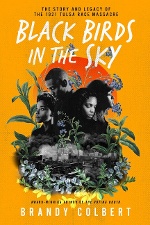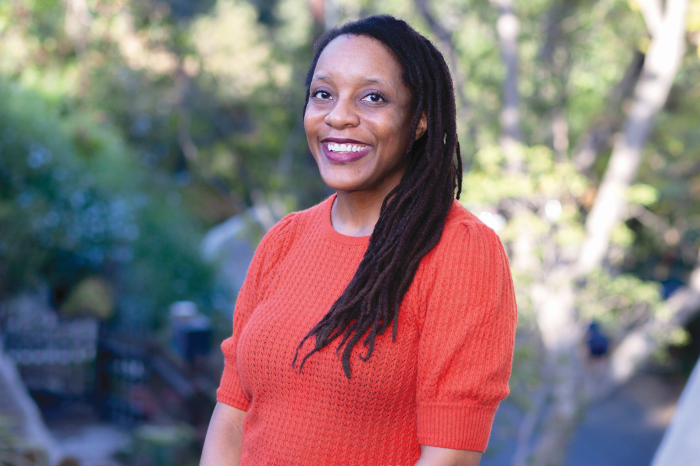When I first began writing at the age of seven, I dreamed of being published, but I never imagined I would become an author of nonfiction — let alone of a history book.
 When I first began writing at the age of seven, I dreamed of being published, but I never imagined I would become an author of nonfiction — let alone of a history book. As a child, when I started to choose and read books for myself, I was most drawn to fiction, and primarily contemporary realistic fiction. It felt like such a treat to peek into the sorts of lives I would never experience growing up in my sheltered, suburban area of the Midwest.
When I first began writing at the age of seven, I dreamed of being published, but I never imagined I would become an author of nonfiction — let alone of a history book. As a child, when I started to choose and read books for myself, I was most drawn to fiction, and primarily contemporary realistic fiction. It felt like such a treat to peek into the sorts of lives I would never experience growing up in my sheltered, suburban area of the Midwest.
As a teenager, although I still wanted to become a published author, I also thought I would become a music journalist. In addition to our being a family of bookworms, my parents were big consumers of media in general, so we had subscriptions to the local newspaper (the Springfield News-Leader) along with Black magazines such as Ebony, Jet, and Essence. I was surrounded by interesting stories, both fiction and nonfiction, and after learning the basics of journalism in high school, I decided to major in print journalism in college. While I never did embark on a music journalism career, I worked as an editor for a wide variety of magazines, which taught me a little bit about a lot of things and furthered my knowledge in a number of surprisingly niche subjects.
I didn’t become curious about history, however, until I began working alongside a former newspaper editor of thirty years. He was a true journalist and one of the best storytellers I’d ever met, and the tidbits of historical information he’d drop into our conversations always left me wanting to learn more. It wasn’t just the facts he was sharing, but the way in which he told them. Every event had a reason, and there were real people behind the names he mentioned. This was a change from the way I had been taught history in school; back then, dates and names were just details to memorize, rather than delving into them to make sense of the past. And, growing up, it hadn’t taken me long to understand that United States history, as it was taught and written in textbooks, was not meant for me or people who looked like me. If one didn’t know better, one would assume, based on this curriculum, that Black Americans had no real history outside of enslavement and the civil rights movement of the mid-twentieth century.
I can’t recall exactly when I first heard about the Tulsa Race Massacre of 1921, but I do remember being surprised that such a devastating event had happened in a town I’d always felt safe visiting. It would be years before I began to connect the dots between Tulsa’s predominantly white demographics and the fact that my own hometown of Springfield, Missouri, just three hours away, was only three percent Black when I was growing up in the 1980s and 1990s. A triple lynching of Black men over Easter weekend in 1906 sent the Black community of my hometown fleeing in the early twentieth century, and the arrest of a young Black man and a white mob’s threat to lynch him were the catalyst for the Tulsa Race Massacre that occurred just fifteen years later.
The Greenwood District was a thriving Black neighborhood in North Tulsa that was created out of exhaustion from oppressive Jim Crow laws, the need for a community whose people supported one another, and the desire to keep Black prosperity growing within that community. While Black Americans have long been known to make a way out of no way, I was particularly struck by the sheer resilience of Black Tulsans after the destruction of their homes and businesses — and, in some cases, the tragic loss of family members and friends who were murdered by a violent white mob. Despite being denied reparations, as well as enduring multiple attempts by public officials and insurance companies to sabotage their future, the residents of Greenwood immediately began working to rebuild what they had lost. Even in the aftermath of so much violence and the refusal of a city and state to properly acknowledge and apologize for what had happened, they simply wanted their community back.
A sense of community is what compelled me to write a history book. While I greatly admire activists, I had never considered myself one. To me, activism had always meant organizing and marching and putting oneself on the front lines of causes to engender change. I didn’t understand for quite some time that activism comes in many forms, and that the best method for me is to incorporate history into my work for young people. Researching, writing, and sharing the often-hidden, sometimes-buried history of Black Americans is one of the most radical things I can do — especially now, in an era where people who believe it is inappropriate to teach children the true story of this country are mobilizing to ban works that unapologetically present factually accurate accounts. I will always believe children deserve the whole truth, and I will never stop striving to share it.
[Read Horn Book reviews of the 2022 BGHB Nonfiction winners.]
I could not have written Black Birds in the Sky without the support of so many wonderful people. I’m immensely grateful to the entire team at HarperCollins and Balzer + Bray, who worked so hard to beautifully package this book and share it with schools, libraries, and booksellers. My editor, Jordan Brown, and my agent, Tina Dubois, are two brilliant people I am proud to know, and I’m so grateful for the care and support they’ve provided every step of the way, from the spark of an idea to a finished book. Their belief in me was a bright spot while I wrote this book during the tumultuous year of 2020. I am thankful to my family, especially my mom, for their love and for allowing me to share some of our own history in the foreword.
Thank you to the Boston Globe–Horn Book Awards committee for honoring Black Birds in the Sky with this wonderful accolade. It is more important than ever to uplift works that share the truth of the past with children and teens today, and I’m grateful that this recognition will help young readers have access to the story of the Tulsa Race Massacre for years to come.
And, finally, I want to thank everyone who has picked up a copy of my book, talked about my book, and shared it with young people. Thank you for taking the time to sit with these difficult truths and for working to make a more inclusive, honest future for us all.
From the January/February 2023 issue of The Horn Book Magazine. For more on the 2022 Boston Globe–Horn Book Awards, click on the tag BGHB22. Read more from The Horn Book by and about Brandy Colbert.


 When I first began writing at the age of seven, I dreamed of being published, but I never imagined I would become an author of nonfiction — let alone of a history book. As a child, when I started to choose and read books for myself, I was most drawn to fiction, and primarily contemporary realistic fiction. It felt like such a treat to peek into the sorts of lives I would never experience growing up in my sheltered, suburban area of the Midwest.
When I first began writing at the age of seven, I dreamed of being published, but I never imagined I would become an author of nonfiction — let alone of a history book. As a child, when I started to choose and read books for myself, I was most drawn to fiction, and primarily contemporary realistic fiction. It felt like such a treat to peek into the sorts of lives I would never experience growing up in my sheltered, suburban area of the Midwest.




Add Comment :-
Be the first reader to comment.
Comment Policy:
Comment should not be empty !!!